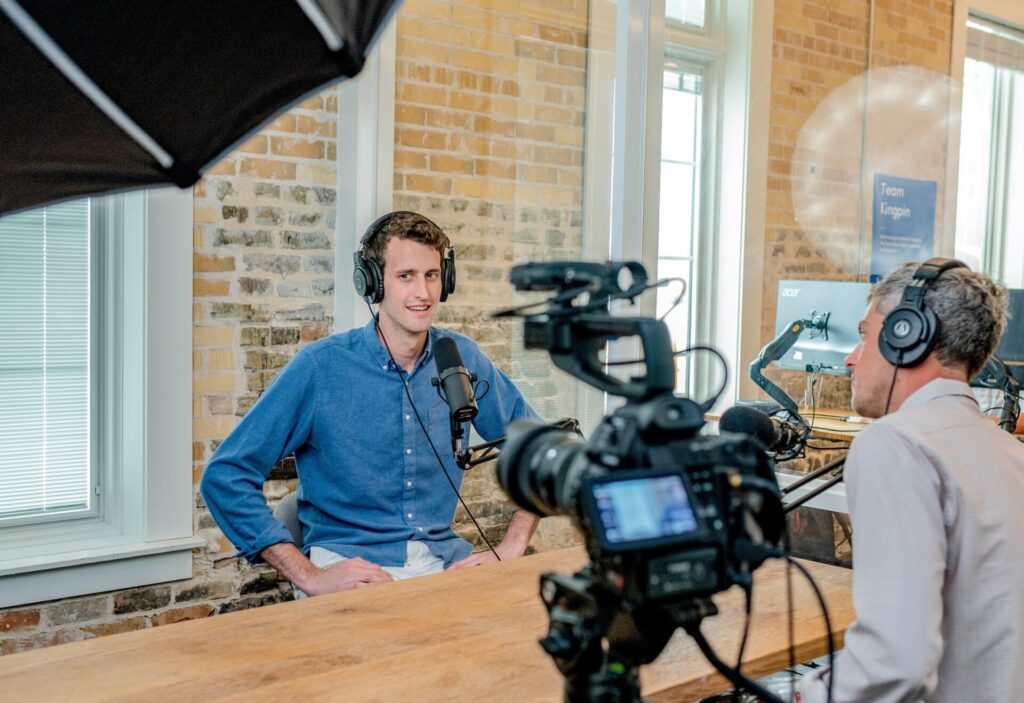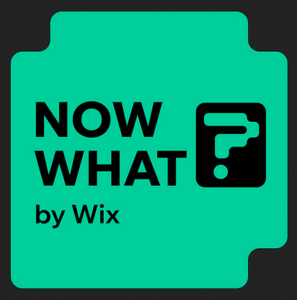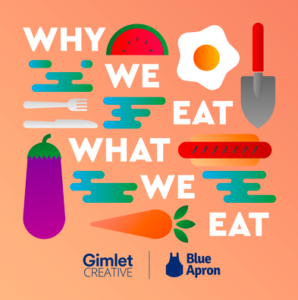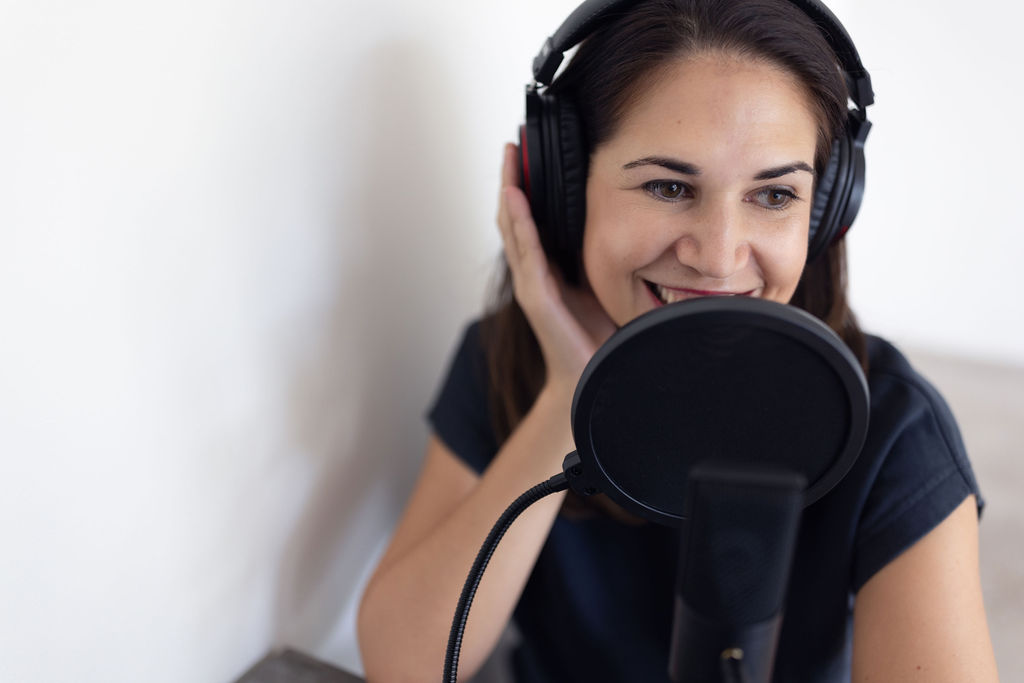Image Source: Austin Distel via Unsplash
Why do you need podcasts in your marketing strategy? After more than a decade working in content, I’ve seen the evolution of various digital marketing strategies over the years. Some were fads, but some were the seeds of the most engaging digital marketing we see today. What the most engaging strategies had in common, however, was that they added value beyond just promotion of their product. In some cases, this was pure entertainment value. But often this was value through learning, community or exclusivity (remember when clubhouse was invite-only? Google was too when it first launched gmail.)
Lately, I’ve been watching with interest as brands use podcasts to deliver all this. Where I think podcasts have an edge is that they are inherently personal. They allow brands to be, quite literally, in the ears of their ideal audiences. It’s a level of intimacy with your audience that’s hard to replicate. This is why I think branded podcasts have an invaluable role to play in a brand’s digital marketing toolkit.
Welcome to the Podcast Age
Podcasts have been around for over a decade but have gained significant popularity in recent years. The podcast index estimates that there are currently more than 4 million active podcasts available. More importantly for brands, podcast listening is also increasing. According to Triton Digital, not only did podcast downloads increase by 20% in 2022, listeners downloaded an average on 3.8 hours of podcast content per week (an increase from 2.7 in 2021).
The reasons for the rise of podcasting are many – ease of access, portability, and the ability to multitask while listening. With the increasing demand for podcasts, businesses have taken notice and started to use them as part of their branding and advertising strategies. While branded podcasts allow businesses to demonstrate thought leadership or value to customers, podcast advertising allows brands to connect with audiences within the format of a podcast they love and trust.
The Impact Podcasting on Digital Marketing
Podcasts have become a mainstream form of media, and their influence on digital marketing can’t be ignored. Multiple sources agree that 80% of podcast listeners listen to all or most of each episode. This high engagement rate offers businesses an opportunity to connect with their target audience on a deeper level. Branded podcasts are an effective way for businesses to create brand awareness, increase engagement and establish themselves as thought leaders in their industry.
The Benefits of Branded Podcasts
Branded podcasts offer several benefits for businesses: They provide a unique opportunity to showcase a brand’s personality and values; They allow businesses to position themselves as experts in their field; They create a loyal audience that is more likely to engage with the brand’s other content; They offer a cost-effective way to produce content that can be repurposed across different platforms and perhaps most importantly, they provide valuable data and insights into audience behaviour that can be used to optimise marketing strategies.
Create a Branded Podcast in 7 Steps:
Step 1: Define Your Goals
The first step in creating a branded podcast is to define your goals. What do you want to achieve with your podcast? Do you want to increase brand awareness, drive sales, or establish thought leadership? Defining your goals will help you create a podcast that aligns with your business objectives and help you understand which metrics are most important to track.
Step 2: Identify Your Target Audience
Who are you creating your podcast for? What are their interests, pain points, and preferences? Understanding your target audience will help you create content that resonates with them.
Step 3: Create your 10 Word Statement
What is your podcast about? Why should people listen? Podcast and radio veteran Eric Nuzum talks about creating a 10 word statement in his book Make Noise which is possibly the bible of podcast creators. The 10 word statement should explain exactly what your show is and nothing else. It’s harder than it sounds. Not only will your 10 word statement help you zero in on the theme of your show, it will also ensure that your whole team is aligned on what your podcast actually is. It will also help you make all of the content decisions as you develop your show from what format you should use, what guests you should invite on your show to what topics you should cover.
Step 4: Create a Format
The format of your podcast should deliver your 10 word statement in the most engaging and entertaining way to your target audience. Think about how your podcast will fit into your audience’s day. Will they listen to it as they commute? Exercise? With their family over breakfast? This will give you insight into a format that will resonate.
Step 5: Plan Your Content
Create a plan for each episode of your show. If your show is seasonal, create a plan for your season in addition to your episode plans. Even if you are working with the most seasoned host or interviewer, create an outline for each episode that includes 3 valuable takeaways you want your listener to get out of the episode.
Step 6: Edit, Edit, Edit.
Content may be king, but a creating a good listening experience is like the valet who knows what you need before you do. All podcasts, even those designed to sound ‘raw’ and ‘authentic’ can benefit from good editing. Not only should you remove any unnecessary pauses, ums, or ahs, but you should also edit for content to improve pace and ensure the episode stays on topic.
Step 7: Publish and Promote
Publish your podcast on as many platforms as you can, not just the major ones. Promote your podcast on social media, email, and all the other marketing channels you use to communicate with your customers. Check out this post if you want some tips on how to promote and grow your podcast.
Branded Podcasts We Love
Here are some branded podcasts and formats we love:
1. Now What? by Wix
Website builder Wix’s podcast Now What? Talks to a variety of industry leaders from businesses like Spotify, Meta and the New York Times about entrepreneurship, tech, product development and more. The show works because it offers businesses and start-ups (Wix’s ideal clients) the opportunity to learn from the experiences of business leaders who are experts in their fields.
2. Why We Are What We Eat by Blue Apron
Why We Are What We Eat is about a lot more than food. It dives into the psychology of food and what influences our eating habits. Produced by Gimlet Media which has produced some of the most listened-to and acclaimed branded podcasts, the goal was to create a podcast that wasn’t “foodie” and would resonate with Blue Apron’s target audience – people who just wanted to make cooking healthy food easier. Frances Harlow, Gimlet Media’s Deputy Director of Content said “With Why We Eat What We Eat, our goal is to tell stories that will resonate with people who have never turned on their ovens, as much as with professional food bloggers.”
3. If These Walls Could Talk by Red Bull
If These Walls Could Talk is a journey through the venues, parties and people that shape Australia’s nightlife culture. It’s a beautiful case study in storytelling that transports you to a specific time and place. It’s a perfect brand identity vehicle for Red Bull who wants to become synonymous with heightened experiences and unforgettable memories.
Branded podcasts offer businesses a unique opportunity to connect with their target audience on a more intimate level. They provide a cost-effective way to produce content that can be repurposed across different platforms. Branded podcasts also provide valuable data and insights into audience behaviour that can be used to optimise marketing strategies. As the popularity of podcasts continues to rise, branded podcasts will become an essential part of any digital marketing strategy.







